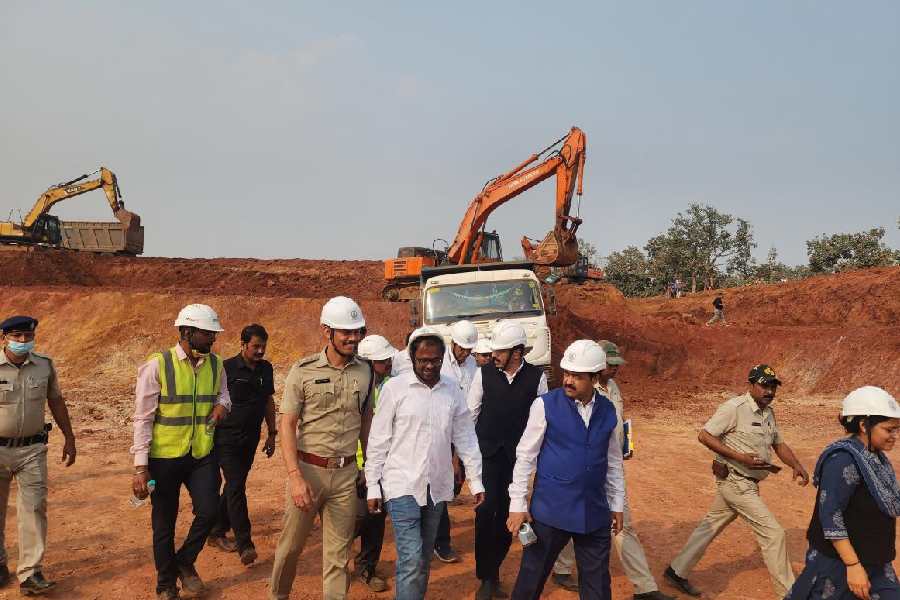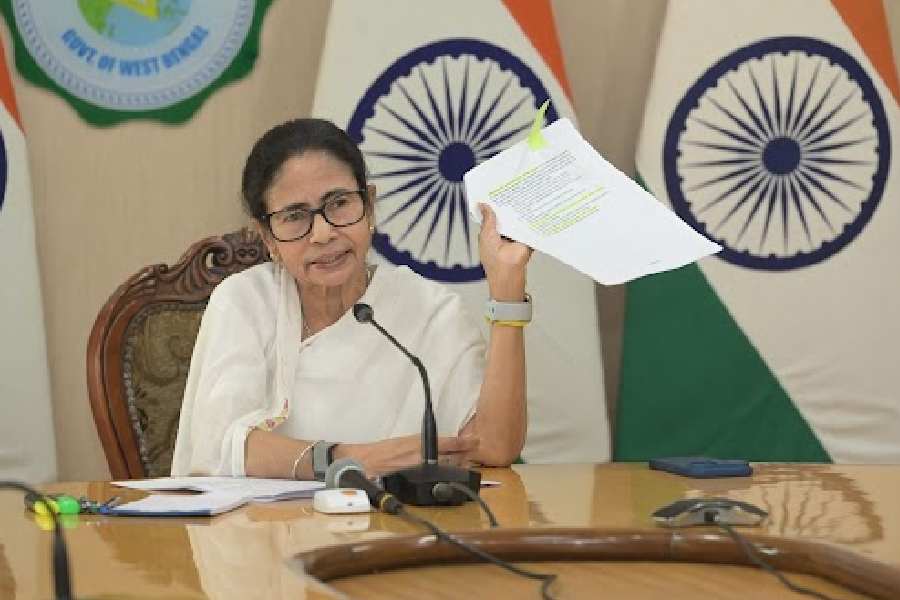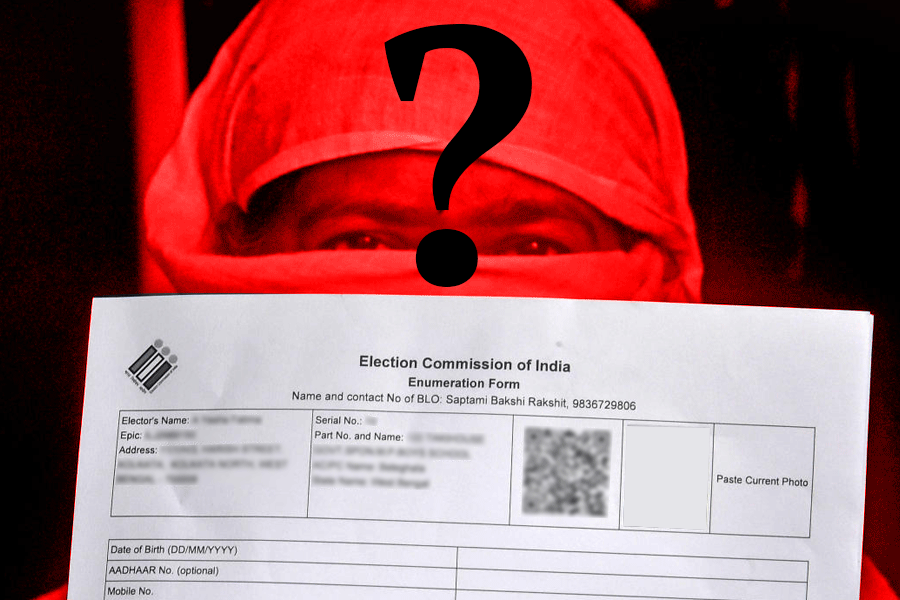A team of senior state government officials visited Deocha-Pachami in Birbhum on Friday to identify local issues in the proposed coal mine project areas and prepare a roadmap to address the demands of the residents.
PHE secretary Surendra Gupta, tribal development department secretary Choten D. Lama, chairman and managing director of WBPDCL P.B. Salim and director of health services Swapan Soren spent the entire day visiting villages in the project area, inspecting ongoing basalt mining work and overseeing the tree translocation process.
After visiting the project areas, the top officials held a meeting where they planned to address key issues related to health care, roads, tribal development, drainage and drinking water. They decided to set up camps in the areas and address the issues of the local people, particularly the tribal community, on an emergency basis.
“The government is very keen to ensure that the people in the area receive essential civic amenities. The senior officials visited the project site to identify whether there were any critical gaps in service delivery and to address them immediately,” said Birbhum district magistrate Bidhan Ray.
A source said the visit of senior secretaries and top officials to Deocha-Pachami was crucial as the government didn’t want any disruptions in the ongoing basalt mining work — considered a preliminary stage before coal excavation — at least before the 2026 Assembly elections.
Opposition parties have started questioning the Bengal government’s claims regarding the project.
Chief minister Mamata Banerjee has repeatedly described the proposed coal mine as one of Bengal’s largest industrial projects, expected to create around one lakh jobs, directly and indirectly.
Following her announcement at the Bengal Global Business Summit (BGBS), the state government began basalt excavation on a 376-acre stretch of land earlier
this month.
“Our goal is to keep the local people on our side. If they are satisfied with the government’s efforts, then no external forces — whether political parties or activists — will be able to disrupt the chief minister’s dream project,” said a senior government official.
A group of tribal people from the area recently met the leader of the Opposition, Suvendu Adhikari, in Calcutta and submitted to him a charter of demands. Adhikari has pledged his support to them. However, a Trinamool leader claimed that most adivasis who met Adhikari had no direct connection to the
project area.
To address local concerns, the ruling party has assigned senior leaders such as Rajya Sabha member Samirul Islam and Anubrata Mondal to assess the situation and ensure that no gap with the people of the area is created.
“Our chief minister is always pro-people, which is why she sent a team of top officials to ensure the needs of Deocha-Pachami’s residents are met,” said Samirul Islam.
As the region is rocky and part of the Chota Nagpur Plateau, there is a drinking water crisis. Villagers have demanded the installation of several deep submersible pumps to provide a stable water source.
“In addition to water, issues such as roads, drainage, hospital services, and caste certificates also need attention. We will address every demand of the local people,” said an official.
A senior TMC leader has noted that approximately 4,000 people reside in the area where the first phase of the project will be implemented. “If the government ensures their well-being, no one will be able to mislead them,” he said.










